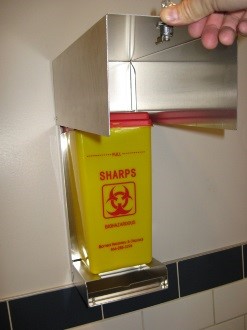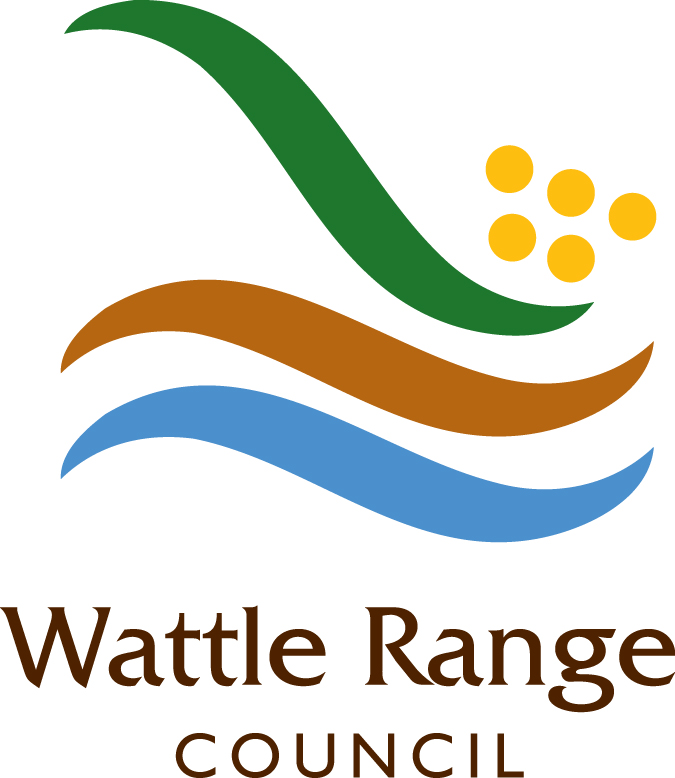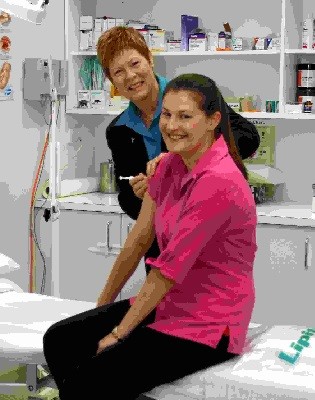Public Immunisation Program
Immunisation is a simple, safe and effective way of protecting people against harmful diseases that can cause serious health problems in the community. Immunisation not only protects individuals from life-threatening diseases, but also dramatically reduces transmission in the community. The Australian Government’s Immunise Australia Program, includes vaccines against a total of 16 diseases. These include routine childhood vaccinations against diseases that were once widely fatal, such as measles, diphtheria and whooping cough (pertussis), as well as more recently developed vaccines, such as Human Papillomavirus (HPV) and the meningococcal C vaccine.
Vaccines recommended for children and adolescents on the National Immunisation Program are available at no cost and can be accessed at:
community health centres
Aboriginal health centres
doctors clinics
Adult immunisations may be subject to a user pay system, please ensure you speak with your immunisation provider about the cost of these vaccine.
Council supports the provision of public immunisation sessions to assist in maintaining appropriate immunisation rates and public health within our community.
South East Regional Community Health Services (Millicent Community Health) hold free public immunisation session on first Wednesday of each month at Millicent Banksia House, Mount Gambier Road, Millicent, from 3 pm to 4.30 pm
For any inquiries or bookings please contact Millicent Community Health prior to attending the public sessions, on 08 8733 4755 between 9 am – 5 pm (Monday to Friday)
Vaccines for newly arrived refugees
Vaccines for newly arrived refugees are available at no cost under the Australian Government Humanitarian Scheme. This service is available at the Mount Gambier and Naracoorte South East Regional Community Health Services.
Vaccines for special risk groups
If you are Aboriginal or Torres Strait Islander, you are eligible for free vaccination against many vaccine preventable disease, such as, diphtheria, polio, tetanus, hepatitis B, measles, mumps and rubella.
Ensure you speak with your immunisation provider about how you can get yourself immunised at no cost.
Travel vaccines
Going overseas and need to be immunised? All intending travellers should be vaccinated according to the recommended vaccination schedule for the traveller’s age. Travel vaccines should be considered according to risk. Priority should be given to vaccines for disease that are common and of significant impact (such as influenza and Hepatitis A), and to those disease which, although less common, have severe potential adverse outcomes (such as Japanese encephalitis and rabies). It is important to document travel vaccines appropriately, not only in the clinic’s record but also in a suitable record that can be carried by the traveller.
Contact Community Health and/or your local doctor to discuss your vaccination requirements.
Ensure you speak with your immunisation provider about any additional expenses prior to your appointment.
Occupational vaccines
If you are at a higher risk of coming into contact with specific diseases, contact your immunisation provider or employer to discuss your vaccination requirements if you are at occupational risk.
Ensure you speak with your immunisation provider about any additional expenses prior to your appointment.
Community Sharps Disposal System
‘Community sharps’ is the collective term given to those needles, syringes and lancets used by members of the community for the administration of medication. For example the treatment of diabetes, pain relief for arthritis or prevention of allergic reactions.
Best practice for safe community sharps disposal:
Place all community sharps into an approved sharps container
Do not refill the container, seethe ‘fill line’ on the outside of the container
Ensure the lid is securely closed
Dispose of containers only at a community disposal facility
Always keep containers out of reach of children
What to do if you find used syringes
Tell children to let an adult know if they find a syringe.
Do not:
handle a syringe
try to break off, bend or cover the sharp end of a syringe.
If you don’t feel confident to safely dispose of the syringe, call the Needle Clean Up Hotline on 1300 13 1340, or Council on 8733 0900.
If you do feel confident, you can follow these steps:
find a hard-walled, puncture-proof container with a wide top and a secure lid
bring the container to the syringe so you don’t have to carry the syringe
place the container on ground next to syringe
use protective gloves or tongs and carefully pick up the syringe, avoiding the sharp end - do not recap the needle if the cap has been removed
place the syringe in the container, sharp end first
if available, secure the lid of the container
wash hands with running water and soap
place the container in a sharps disposal bin – call the Needle Clean Up Hotline on 1300 13 1340 to find your nearest disposal location.
Council has installed in a number of public toilets sharps containers, to ensure sharps are being disposed of correctly by the members of the public.

Community Sharps Disposal Program is located at:
Millicent and District Hospital and Health Services
Mount Gambier Road
MILLICENT SA 5280
For after-hours there is an outside chute in the hospital building to dispose of your sharps containers. Please note that all sharps must be disposed of in a sealed and approved sharps container in accordance with AS 4031-1992 or AS 4939-2001, before disposal.
Thank you for disposing of your sharps responsibly!

